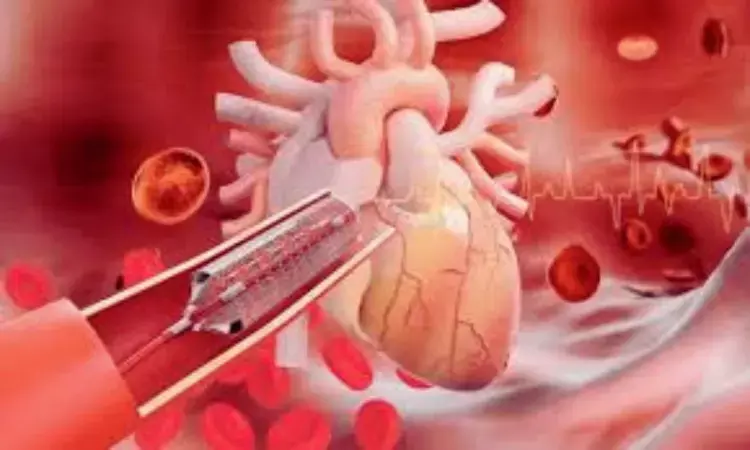- Home
- Medical news & Guidelines
- Anesthesiology
- Cardiology and CTVS
- Critical Care
- Dentistry
- Dermatology
- Diabetes and Endocrinology
- ENT
- Gastroenterology
- Medicine
- Nephrology
- Neurology
- Obstretics-Gynaecology
- Oncology
- Ophthalmology
- Orthopaedics
- Pediatrics-Neonatology
- Psychiatry
- Pulmonology
- Radiology
- Surgery
- Urology
- Laboratory Medicine
- Diet
- Nursing
- Paramedical
- Physiotherapy
- Health news
- Fact Check
- Bone Health Fact Check
- Brain Health Fact Check
- Cancer Related Fact Check
- Child Care Fact Check
- Dental and oral health fact check
- Diabetes and metabolic health fact check
- Diet and Nutrition Fact Check
- Eye and ENT Care Fact Check
- Fitness fact check
- Gut health fact check
- Heart health fact check
- Kidney health fact check
- Medical education fact check
- Men's health fact check
- Respiratory fact check
- Skin and hair care fact check
- Vaccine and Immunization fact check
- Women's health fact check
- AYUSH
- State News
- Andaman and Nicobar Islands
- Andhra Pradesh
- Arunachal Pradesh
- Assam
- Bihar
- Chandigarh
- Chattisgarh
- Dadra and Nagar Haveli
- Daman and Diu
- Delhi
- Goa
- Gujarat
- Haryana
- Himachal Pradesh
- Jammu & Kashmir
- Jharkhand
- Karnataka
- Kerala
- Ladakh
- Lakshadweep
- Madhya Pradesh
- Maharashtra
- Manipur
- Meghalaya
- Mizoram
- Nagaland
- Odisha
- Puducherry
- Punjab
- Rajasthan
- Sikkim
- Tamil Nadu
- Telangana
- Tripura
- Uttar Pradesh
- Uttrakhand
- West Bengal
- Medical Education
- Industry
No significant interaction between treatment strategy with intravascular imaging-guided PCI and sex: JAMA

Korea: A subgroup analysis of the RENOVATE-COMPLEX-PCI trial including 1639 patients showed no significant interaction between treatment strategy and sex in patients undergoing complex PCI with the treatment benefit of intravascular imaging–guided PCI.
"In the analysis, intravascular imaging guidance was associated with reducing the risk of target vessel failure in both women and men," the researchers reported in JAMA Cardiology. "There was no significant interaction between treatment strategy with intravascular imaging-guided percutaneous coronary intervention (PCI) and sex."
Previous studies revealed that women often had worse clinical outcomes after PCI than men. Potential causes for this discrepancy were suggested to be older age, atypical presentation, and a higher number of underlying risk factors in women. Recent studies also found that women tend to experience a higher incidence of adverse outcomes after PCI of complex coronary artery lesions, however, these differences were minimized after adjusting for underlying risk factors.
There have been heterogeneous results related to sex differences in prognosis after PCI for complex coronary artery lesions. Therefore, Ji Hyun Cha, Sungkyunkwan University School of Medicine, Seoul, Korea, and colleagues aimed to evaluate potential differences in outcomes with intravascular imaging–guided PCI of complex coronary artery lesions between men and women.
For this purpose, the researchers conducted a prespecified substudy to evaluate the interaction of sex in the RENOVATE-COMPLEX-PCI randomized clinical trial. The trial, conducted at 20 sites in Korea, evaluated patients with complex coronary artery lesions treated by PCI. It showed superior clinical outcomes following intravascular imaging–guided PCI versus angiography-guided PCI.
Patients with complex coronary artery lesions undergoing PCI were enrolled between 2018 and 2021, and the median follow-up period was 2.1 years.
Following diagnostic coronary angiography, eligible patients were randomly assigned in a ratio of 2:1 to receive intravascular imaging–guided PCI or angiography-guided PCI. The timing and choice of the intravascular imaging device were left to the operators’ discretion. Of 1639 included patients, 20.7% were women, and the mean age was 65.6 years.
The study's primary endpoint was target vessel failure, defined as a composite of target vessel-related myocardial infarction, cardiac death, or clinically driven target vessel revascularization. Secondary endpoints were individual components of the primary endpoint.
Based on the analysis, the researchers reported the following findings:
- There was no difference in the risk of the primary endpoint between women and men (9.4% vs 8.3%; adjusted hazard ratio [HR], 1.39).
- Intravascular imaging–guided PCI tended to have a lower incidence of the primary endpoint than angiography-guided PCI in both men (8.3% versus 11.7%; adjusted HR, 0.72) and women (5.2% vs 14.5%; adjusted HR, 0.34) without significant interaction.
In conclusion, intravascular imaging versus angiographic guidance was associated with a similar reduction in the risk of target vessel failure among women and men among patients undergoing complex PCI. The treatment benefit of imaging-guided PCI showed no significant interaction between sex and treatment strategy.
Reference:
Cha JH, Lee JM, Choi KH, et al. Intravascular Imaging–Guided Optimization of Complex Percutaneous Coronary Intervention by Sex: A Subgroup Analysis of the RENOVATE-COMPLEX-PCI Trial. JAMA Cardiol. Published online April 03, 2024. doi:10.1001/jamacardio.2024.0291
Dr Kamal Kant Kohli-MBBS, DTCD- a chest specialist with more than 30 years of practice and a flair for writing clinical articles, Dr Kamal Kant Kohli joined Medical Dialogues as a Chief Editor of Medical News. Besides writing articles, as an editor, he proofreads and verifies all the medical content published on Medical Dialogues including those coming from journals, studies,medical conferences,guidelines etc. Email: drkohli@medicaldialogues.in. Contact no. 011-43720751


